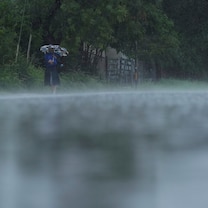Was Richardson's Death Avoidable?
Doctors differ on whether early medical attention could have spared the actress.
March 19, 2009— -- British actress Natasha Richardson died from bleeding on the brain caused when she fell and hit her head while skiing, the New York City Medical Examiner's Office said today.
Medical examiners ruled Richardson's death accidental, and as the direct result of a condition known as an epidural hematoma in which damage to a blood vessel in the lining of the brain causes blood to collect between the brain and the skull. The bleeding would have put increasing pressure on Richardson's brain after her Monday accident, eventually leading to her symptoms and death.
On Wednesday night, Alan Nierob, a spokesman for Richardson's husband, actor Liam Neeson, issued a statement revealing that Richardson had died from her injury.
"Liam Neeson, his sons, and the entire family are shocked and devastated by the tragic death of their beloved Natasha," the statement read. "They are profoundly grateful for the support, love and prayers of everyone, and ask for privacy during this very difficult time."
Details of Richardson's condition had remained scarce -- though initial reports suggested the Tony award-winning actress appeared fine up to an hour after a seemingly minor tumble on a beginner's ski slope at Mont Tremblant ski resort in Quebec, Canada, before her condition rapidly worsened and her family sought medical care.
Doctors remain split on the question of whether immediate medical attention may have been able to save Richardson.
Dr. Alan Faden, professor of neuroscience at Georgetown University and a traumatic brain injury expert, said that while he was not familiar firsthand with Richardson's case, he believes that in many cases, prompt medical attention can save these patients.
"If it is a bleed on the brain ... then it is absolutely a neurosurgical emergency and needs rapid diagnosis and treatment," Faden said. "You can go in and evacuate the blood. If you can stop the bleeding, these people can be completely salvageable, with no long-term effects."
However, Dr. Eugene Flamm, chairman of neurosurgery at Montefiore Medical Center in New York, disagreed that early treatment would necessarily have changed the outcome.
"We all bump our heads, and people come into the emergency department all the time after hitting their heads," he said. "People fall during skiing; it is not an uncommon thing."
If there is no loss of consciousness, Flamm said, these common bumps and knocks are often deemed nonserious by doctors upon examination. He added that even when doctors decide to perform a scan on the head, many bleeds in the brain are hard to see or remain undetectable in their early stages.
"The scan may have been normal, and then how would it have changed anything?" Flamm asked.
Richardson was transferred from a Montreal hospital Tuesday and was being cared for in Lenox Hill Hospital on Manhattan's Upper East Side before her death was announced.



